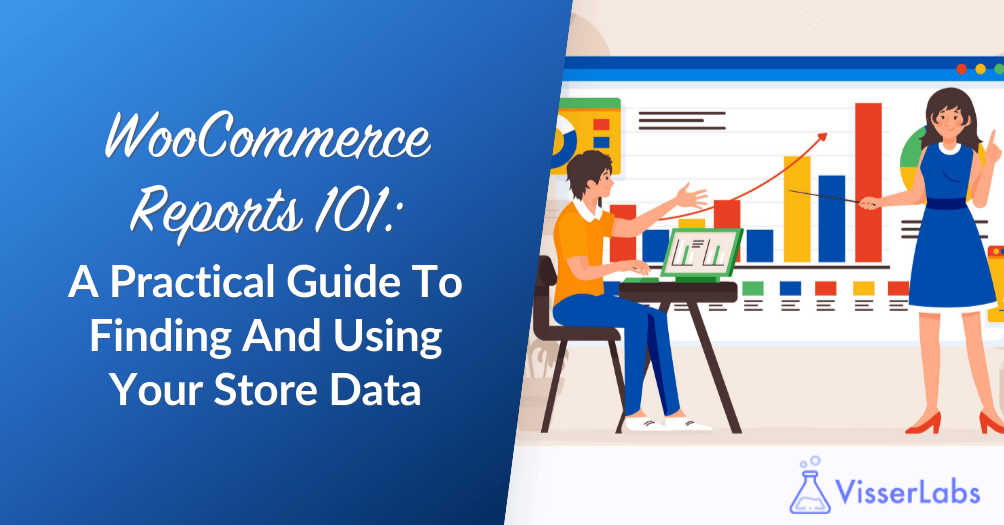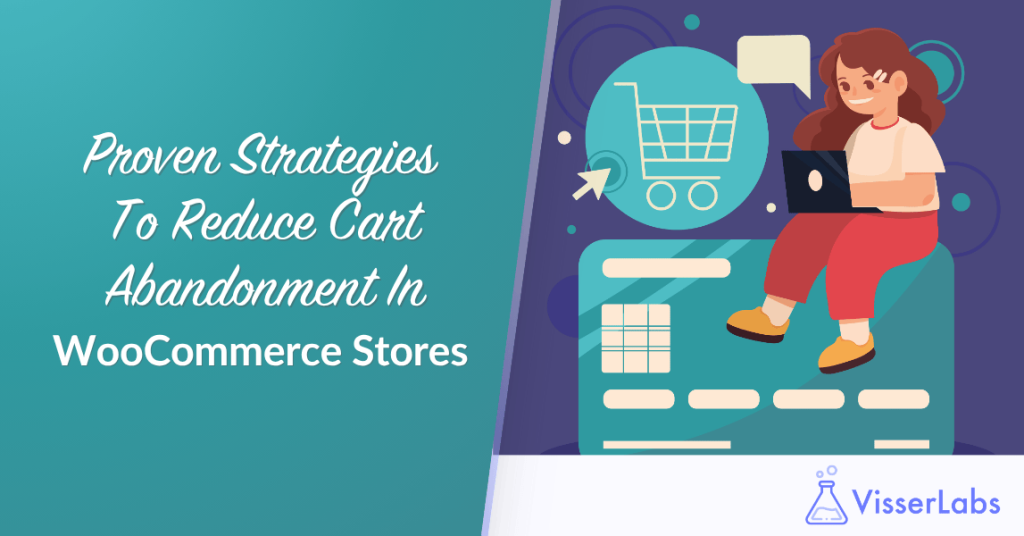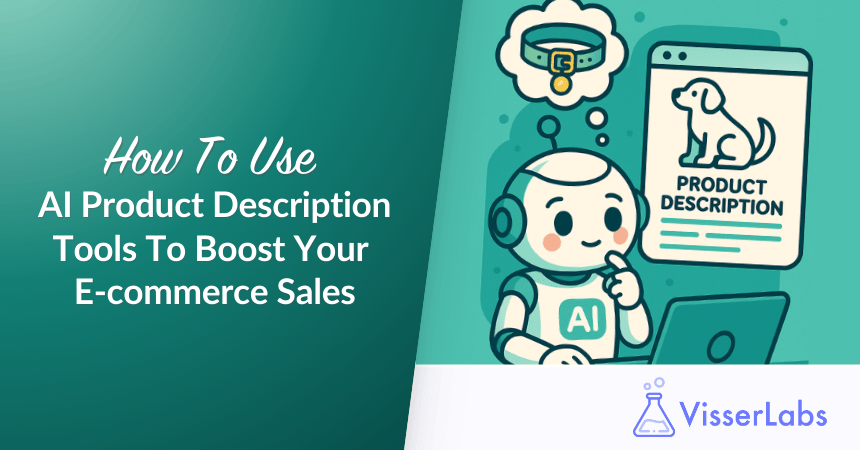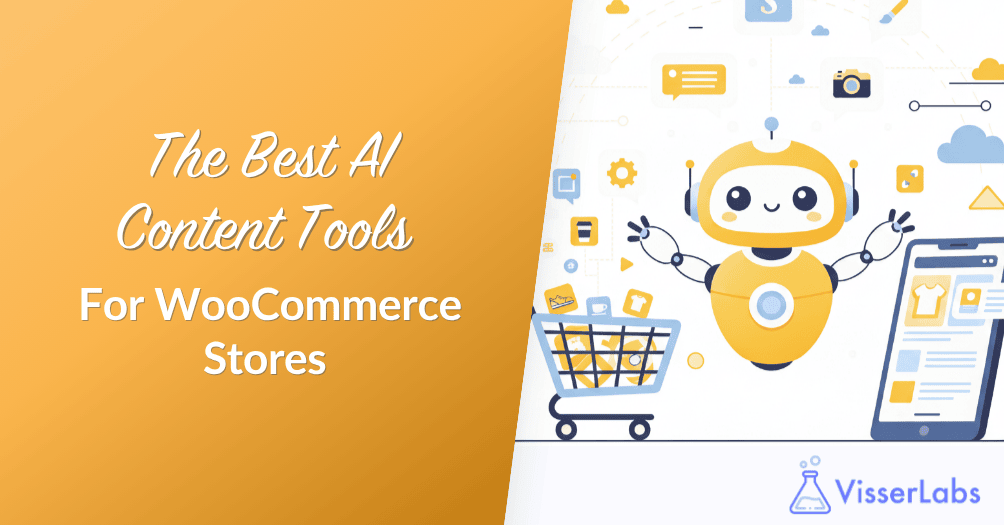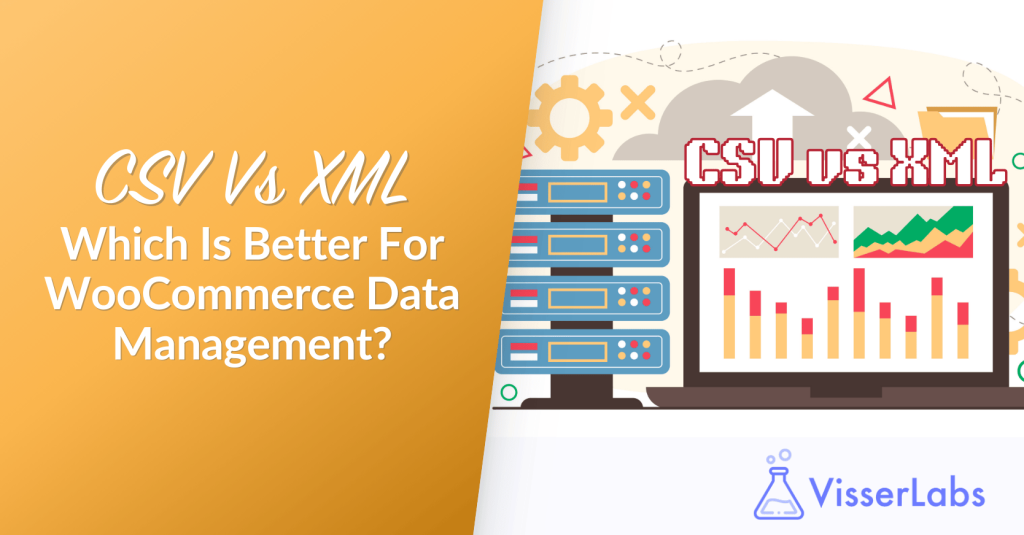
Managing your WooCommerce data can be a real challenge, especially when it comes to choosing between CSV vs XML file formats. Many store owners struggle to decide which format best suits their needs.
The right file format can simplify your reporting and help your CRM work better with your data. We’ve seen firsthand how store owners notice genuine improvements when they select the format that fits their daily needs.
In this guide, we compare CSV and XML by outlining their strengths and weaknesses, and we share real-life examples to help you decide which option fits your business best.
So, let’s get started!
Understanding CSV vs XML For Data Management
What is CSV?
CSV stands for Comma-Separated Values. In simple terms, it’s a plain text file where each line represents a record, and fields are separated by commas. CSV is popular for both exporting data out of your system and importing it into applications.
What is XML?
XML stands for eXtensible Markup Language. It organizes data in a structured, tree-like format that clearly shows the relationships between different elements. This format is especially useful for exporting and importing detailed data, making it easier to handle complex system integrations.
Comparison overview
- CSV file: Simple, easy to edit, and ideal for everyday data tasks using spreadsheets.
- XML file: Offers a clear, structured format that works best for managing complex data relationships during both export and import.
Overall, while CSV files offer a straightforward solution for daily reporting, XML files provide the robust structure needed for intricate data integrations. With these insights in mind, let’s explore the benefits and real-life examples of each file format.
Why Choose CSV For WooCommerce Data Management?
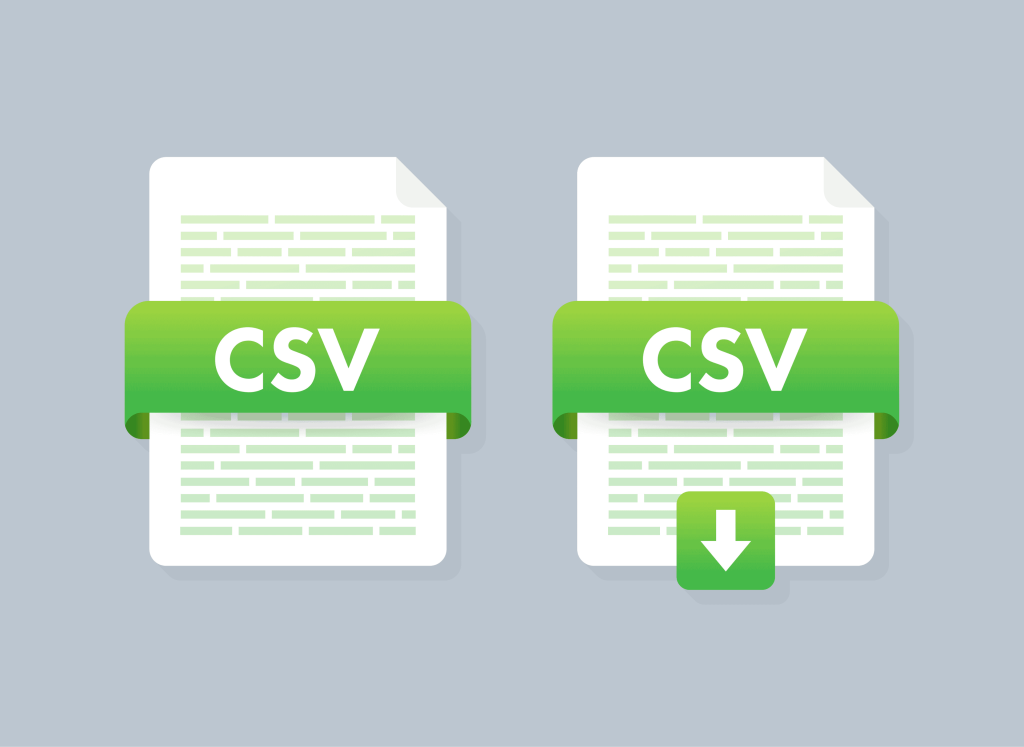
CSV’s simplicity makes it ideal for everyday reporting and quick data reviews. Many store owners find that working with CSV data feels as straightforward as checking a list on paper.
The CSV format is a plain text, comma-separated style that works perfectly with Excel and Google Sheets. Unlike other data formats—such as JSON data or XML data—CSV makes updates and imports easy.
Benefits and uses of a CSV file:
- It lets you update columns easily using spreadsheet tools.
- Quick imports mean less waiting and faster analysis.
- Its simplicity streamlines daily reviews and reporting tasks.
- The CSV format is one of the most common data formats used by store owners.
To help you see how this works in practice, here’s an example scenario:
For example, consider a store owner aiming to optimize their product lineup. They export their WooCommerce order data in CSV file format and open the file in Excel for a quick review.
They quickly notice that sales for a particular product category drop significantly on weekends. This insight leads them to segment the data by day and product.
They then import the refined data into their CRM to run targeted weekend promotions. As a result, their reporting becomes clearer and marketing strategies can be adjusted based on real performance, showing how effective the CSV format can be for WooCommerce data reporting.
We have seen that a significant number of store owners prefer CSV for their routine tasks, thanks to its clear and manageable structure. When you compare CSV vs XML, many appreciate CSV’s simplicity for everyday needs.
Now, let’s take a look at how XML can offer a different approach for more complex reporting tasks.
Why XML Might Be Better For WooCommerce Data Management
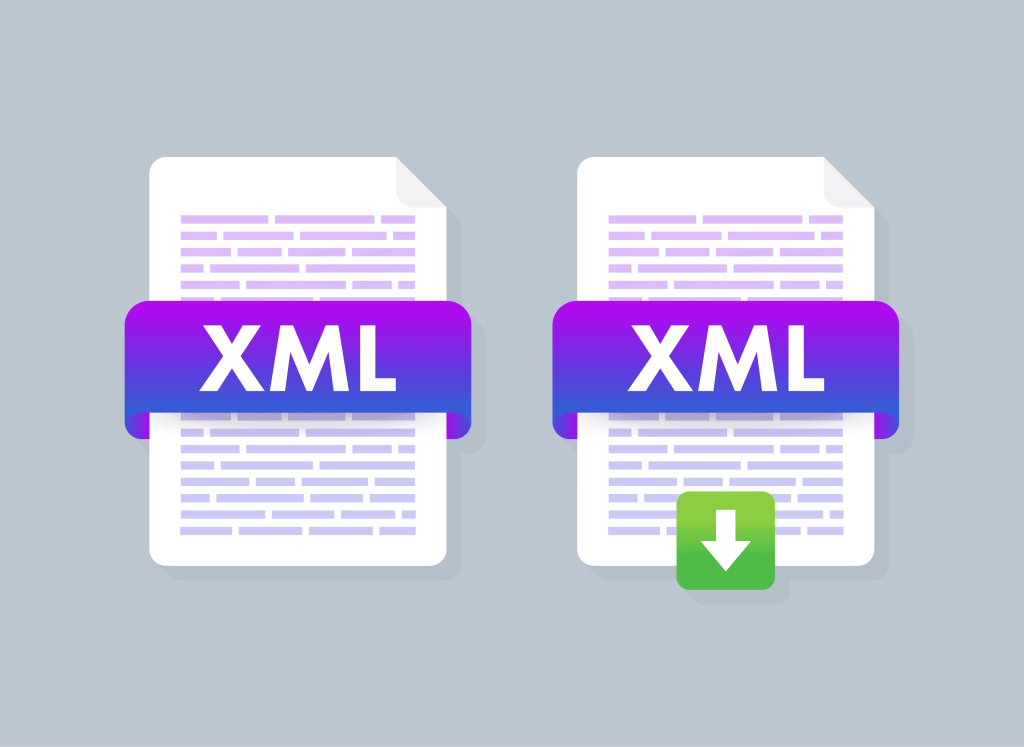
As explained above, XML’s hierarchical structure enables it to handle intricate data integrations efficiently. This XML format clearly shows how different data points relate to each other.
XML data is especially useful when you need to import detailed data into systems that require a clear hierarchy. It handles nested information, such as product variants and order details, more effectively than a simple CSV format.
Benefits of using XML format:
- XML organizes data in a clear, hierarchical tree, making it easier to understand complex relationships.
- You can define custom tags to match your unique data needs, which is useful when working with intricate product details or order information.
- XML handles detailed data much better than simpler data formats, which is especially helpful when importing or exporting rich information.
- Many advanced CRM systems and APIs prefer XML data because of its structured nature, easing the integration process.
- The XML format keeps data context intact, ensuring that important details are maintained during import and export.
To help you see how this works in practice, here’s an example scenario:
Consider a store owner who runs an online boutique selling clothing in various sizes, colors, and customization options. They choose XML format for exporting their WooCommerce data because it naturally captures all product variants in a clear, organized way.
In contrast, CSV might force them to create separate columns or duplicate rows for each variant, which can quickly become messy. XML, however, lets all the variant details nest under the main product record.
This nested structure makes it much easier for their CRM system to read the data accurately. As a result, reporting is smoother and errors are minimized in the CSV vs XML debate.
The XML file clearly defines each data element, so the CRM can map customer attributes accurately. Once imported, the CRM updates customer profiles and tracks interactions in real time.
Which Format Is Right For Your Business?
Deciding between csv vs xml depends on your WooCommerce reporting needs and the complexity of your data. Your choice should align with your business’s specific demands.
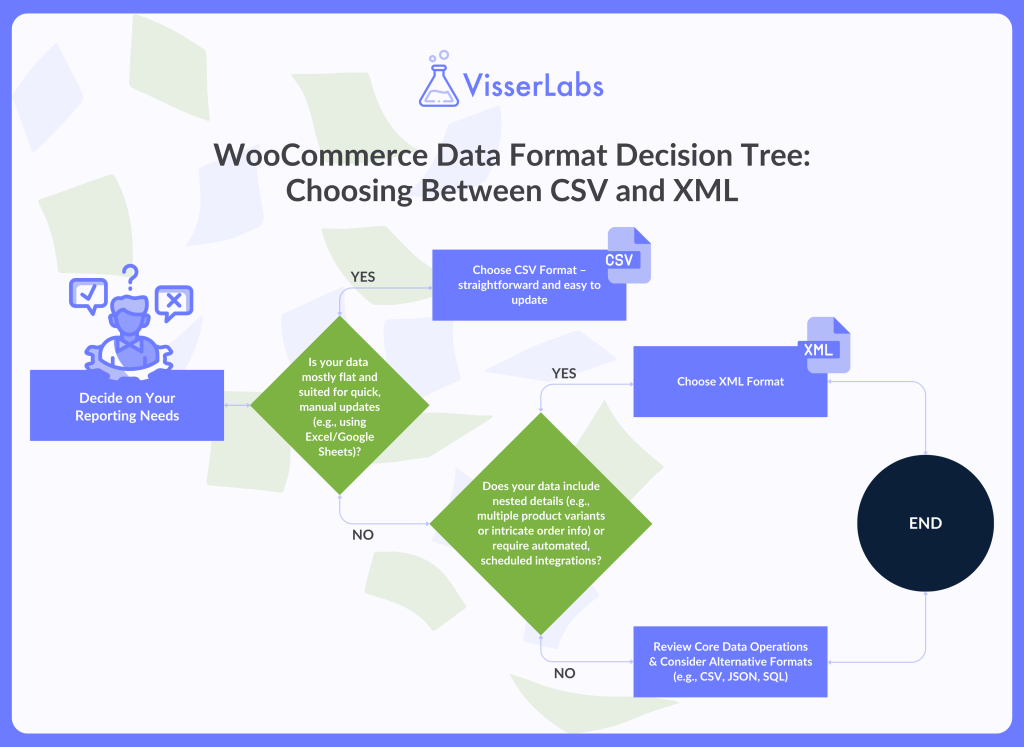
Here are some key considerations:
- If you use simple spreadsheet tools like Excel or Google Sheets, the CSV format works well because it’s a straightforward, comma-separated file that’s easy to update.
- If your data includes nested details such as multiple product variants or intricate order information, an XML format may be more suitable, as it clearly represents relationships within the XML data.
- Consider whether your workflow is more manual or automated; for instance, many store owners import CSV data for quick updates, while others rely on XML data for more detailed integrations.
- Think about your reporting needs: do you require daily updates for quick reviews, or are scheduled imports for comprehensive analysis more important?
Weighing these factors and comparing data formats like CSV vs XML, you can choose the option that fits your business best. Up next, we’ll explore a trusted tool that many store owners rely on to simplify their WooCommerce data reporting.
Best Tools For WooCommerce Data Management
Managing your WooCommerce data is much easier when you use the right tools and follow simple best practices. Many store owners have found that a combination of specialized software and straightforward strategies helps keep their data organized and their reports clear.
We recommend these tools that can handle and manage your WooCommerce data effectively:
1. Store Exporter Deluxe (Visser Labs)
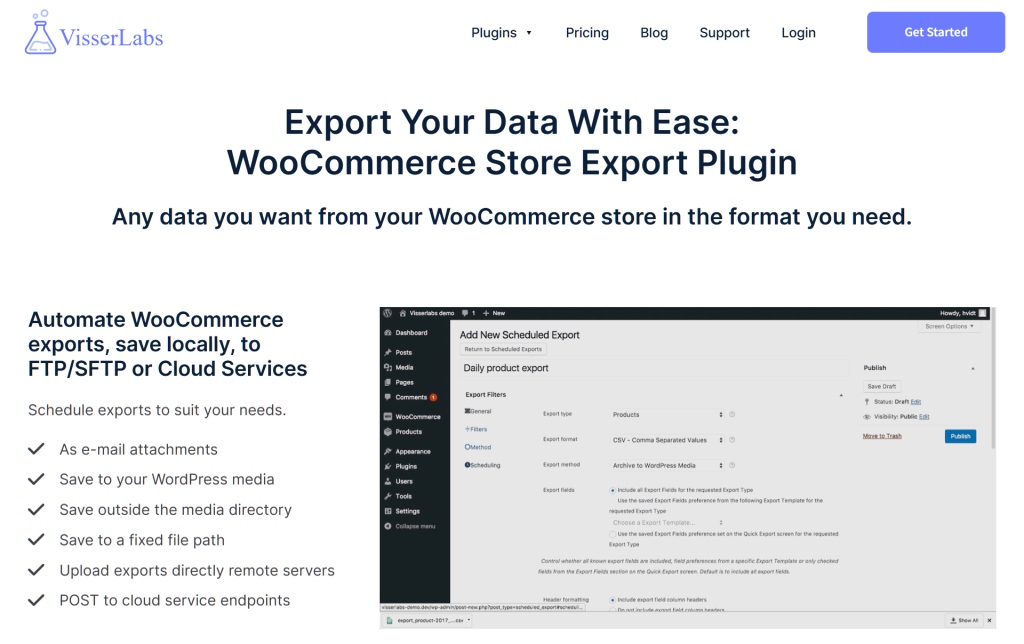
Store Exporter Deluxe is part of a comprehensive product import export suite that many store owners use for managing WooCommerce data. It supports exporting various data along with advanced export tasks across your store.
Here are some of its advanced features:
- Choose from a list of available file formats, including CSV and XML, with a single click.
- Use filtering options to export specific customer data based on defined criteria.
- Customize export columns to adjust the data structure to your needs.
- Configure scheduled exports to run at set intervals, keeping your data current.
- Integrate with CRM systems and reporting tools through supported integration protocols.
2. Product Importer (Visser Labs)
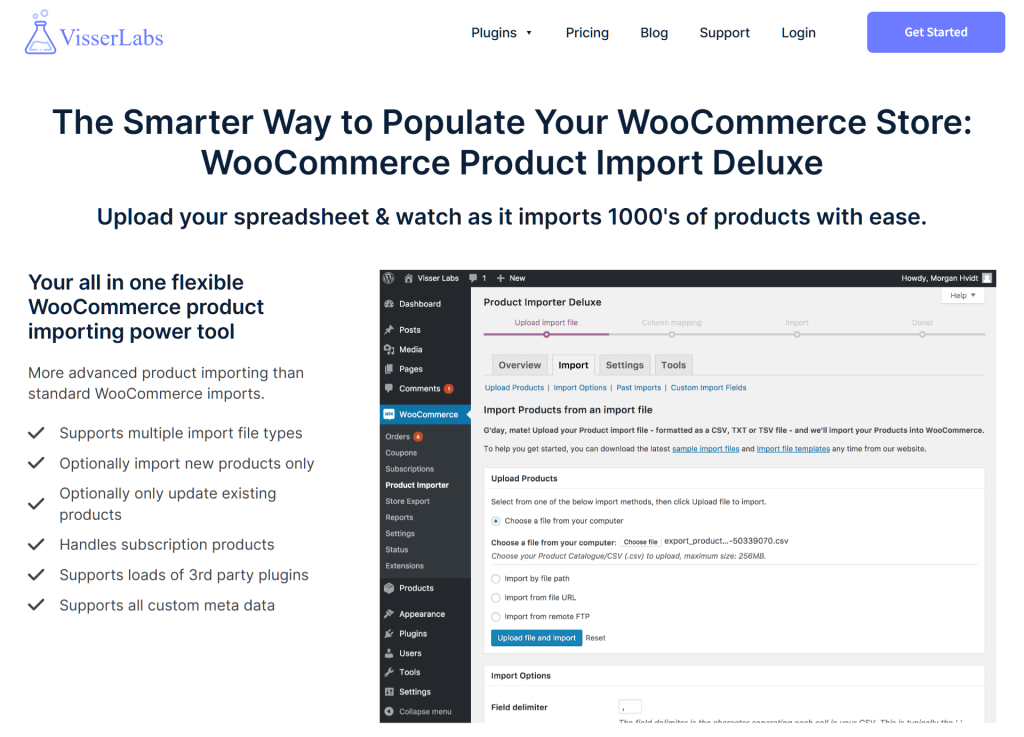
This tool is designed to help store owners easily add or update WooCommerce product data. Product Importer supports importing detailed product information, including variants and metadata.
Here are some of its advanced features:
- Map data columns quickly and accurately from your CSV or XML file.
- Use filtering options to import only specific products or categories.
- Customize import settings to match your store’s unique structure.
- Schedule automated imports to keep your product listings current.
- Integrate smoothly with your WooCommerce setup and other systems.
3. MonsterInsights

MonsterInsights is a powerful analytics tool that helps store owners track WooCommerce data effortlessly. It integrates with WordPress to deliver detailed e-commerce reports from your site.
Here are some of its advanced features:
- Connects directly to Google Analytics for in-depth website and sales tracking.
- Provides real-time dashboards with easy-to-read charts and graphs.
- Tracks key e-commerce metrics like conversion rates, revenue, and customer behavior.
- Simplifies data visualization, making it easier to compare different data formats in your reports.
- Integrates smoothly with WooCommerce to offer clear insights into your store’s performance.
Adopting a few best practices can make your WooCommerce data reporting even smoother. For example, using consistent file naming conventions, scheduling regular backups, and integrating your data with your CRM and analytics tools are simple strategies that many store owners have successfully used.
By following these practices, managing your WooCommerce reports becomes less stressful and more organized. With the right tools and these straightforward techniques, you’re well on your way to keeping your data clear and your business informed.
Conclusion
Choosing the right file format for WooCommerce data reporting can make managing your CRM and tracking performance much more efficient. With the right data format and tools, you can turn raw information into meaningful insights for your business.
As your business evolves, it’s important to regularly review and update your data management systems. This ongoing process helps ensure your data remains accurate and your reporting stays aligned with your growing needs.
To recap, here’s what you need to remember:
- Understanding CSV vs XML For Data Management
- Why Choose CSV For WooCommerce Data Management?
- Why XML Might Be Better For WooCommerce Data Management
- Which Format Is Right For Your Business?
- Best Tools For WooCommerce Data Management
Following these points will help you streamline your data reporting process and maintain organized store data. If you’ve been considering updating your approach, now is the perfect time to get started!
